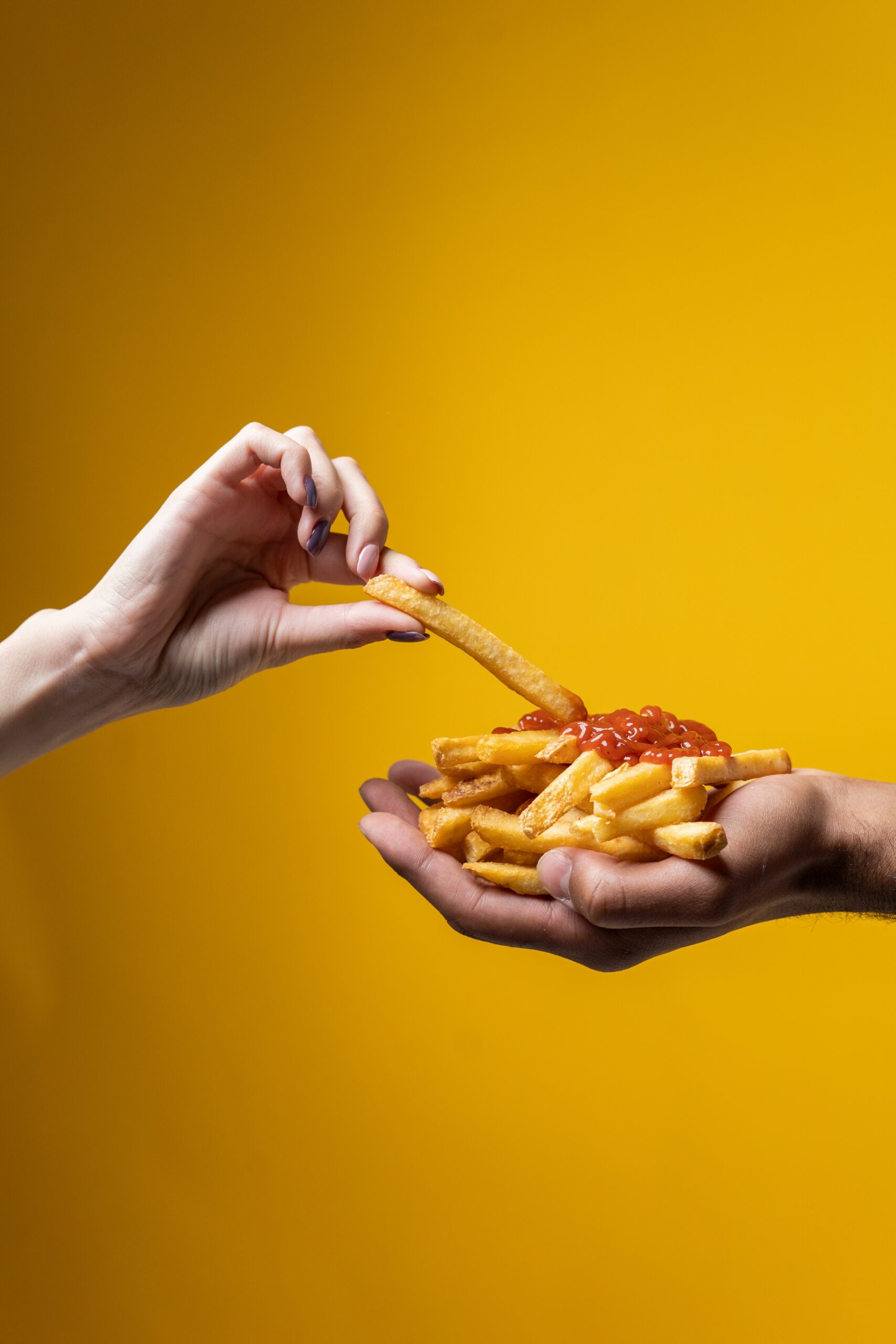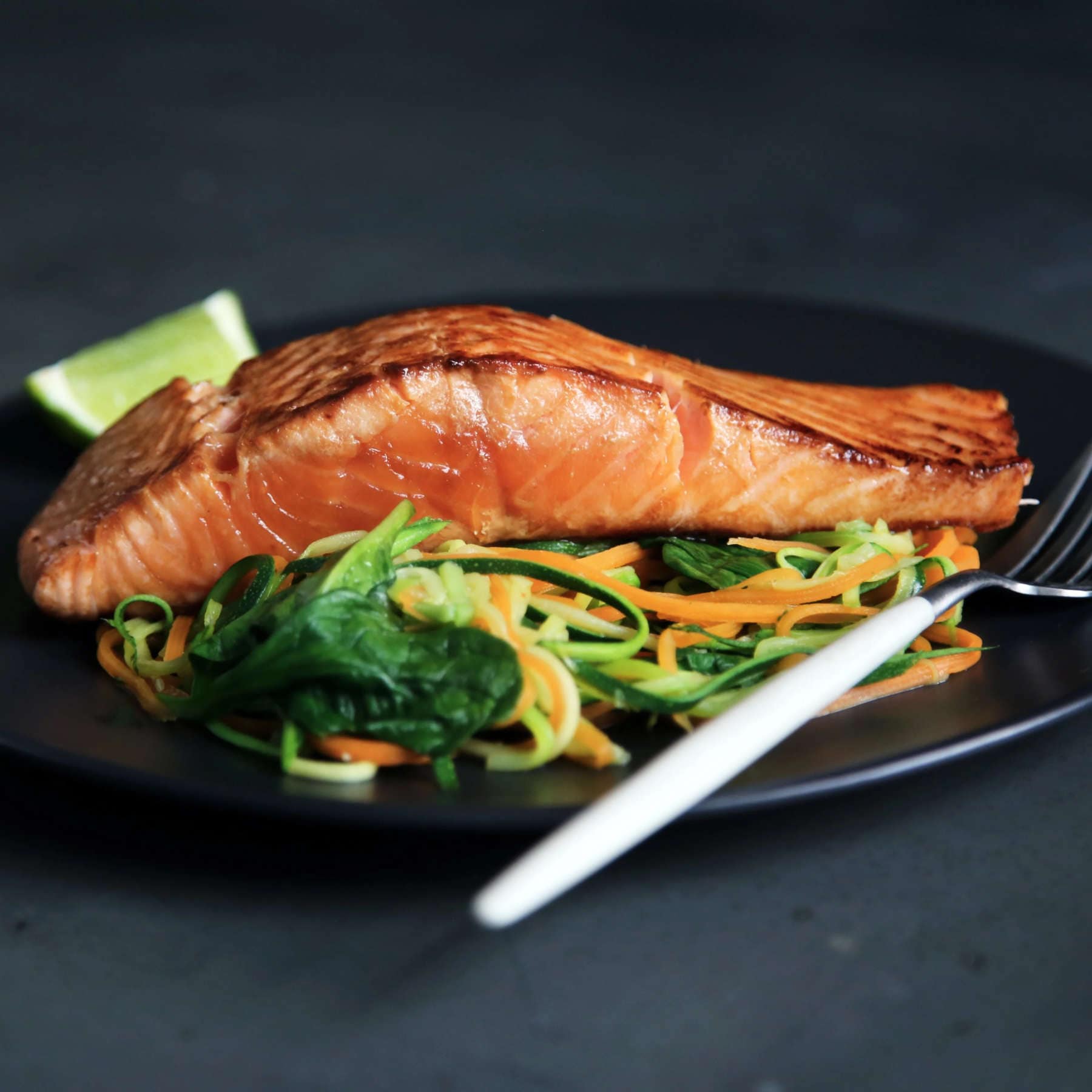Perimenopause is a transitional phase that can bring about a range of physical and emotional changes, including food cravings. This can be stressful for any women struggling with perimenopause weight management.
Mindset can be a powerful tool for managing these cravings and promoting healthy eating habits. This week we will discuss the importance of understanding your food cravings and share tips on how to use mindset to manage perimenopause food cravings.

Food Cravings Are Normal
First things first. When dealing with perimenopause and perimenopause weight management you must remember that food cravings are normal. Instead of feeling guilty or ashamed about your cravings, accept them as a natural part of the process.
Once you recognise that food cravings are normal, then you can begin to understand your specific cravings.
This review (published in 2020) suggests that food cravings tend to develop in the late afternoon or evening, and the desire to eat high-calorie foods increases throughout the day.
Being mindful of this may help you prepare for those cravings.

Top Tips For Perimenopause Weight Management With Food Cravings
1. Tips to reduce food cravings
Mindful eating involves paying attention to the taste, texture, and experience of eating. When you eat mindfully, you may find that you are more satisfied with smaller portions of food, which can help reduce your overall calorie intake.
Focus on nutrient-dense foods. Rather than trying to eliminate your cravings, focus on incorporating more nutrient-dense foods into your diet. These foods can help you feel fuller for longer and provide your body with the nutrients it needs to function optimally.
Feeling full longer can help stave off cravings — especially cravings for snack foods and late-night treats.

2. Get Up And Move
It has previously been thought that exercising made you want to eat more. But research suggests the opposite.
It has been shown that physical activity can help reduce cravings and therefore help perimenopause weight management.
So, getting up and going for a walk might be worth a shot when you suddenly “need” a slice of chocolate cake.
3. Don’t Starve Yourself
A hugely common mistake people make when they want to lose weight is starting on a restrictive diet. Whether you are trying to manage new perimenopause weight or not this strategy usually backfires.
You need to make sure you’re eating enough calories to provide the fuel your body needs on a daily basis. Eating the right food will help combat food cravings too.

4. Perimenopause Weight Management Can Be Linked To Stress
Stress can be a trigger for food cravings, so it’s important to find ways to manage stress during perimenopause. This can include practicing relaxation techniques such as deep breathing, meditation, or yoga.
5. Get Enough Sleep
Sleep is important for regulating hormones and managing cravings.
You may have noticed that when you are tired, you tend to make unhealthier food choices!
Aim for at least 7-8 hours of sleep each night to help with perimenopause weight management by keeping your cravings in check.

Is Perimenopause Weight Management A Matter Of The Mind?
When you experience a craving, try using positive self-talk to manage it. For example, instead of telling yourself, “I can’t have that chocolate,” say, “I choose not to have that chocolate right now because I want to feel my best.”
Most importantly, you should remember that mindset is just one tool for managing perimenopause food cravings. You should speak with a specialist to determine the best course of action for your individual needs.

Be patient with yourself
One last reminder. People who try to refrain from eating certain foods, such as carbohydrates, often experience more intense cravings for those foods in the first few days they try to go without.
But the research also suggests that, eventually, your body will realize you don’t really need those foods and the cravings will decrease.
So, be kind to yourself and remember that food cravings are normal and part of the perimenopause experience for many!
You still deserve a treat.
A combination of the right food, positive mindset, exercise and patience can really help with perimenopause weight management.
If you liked this article, you might also enjoy these from the archive:
Avoid This, Quit That. Perimenopause Is Hard Enough, Do You Have To Quit Coffee Too?
Perimenopause Symptoms? 7 Reasons To Consider Hiring A Coach For Your Nutrition, Fitness And Mindset



0 Comments